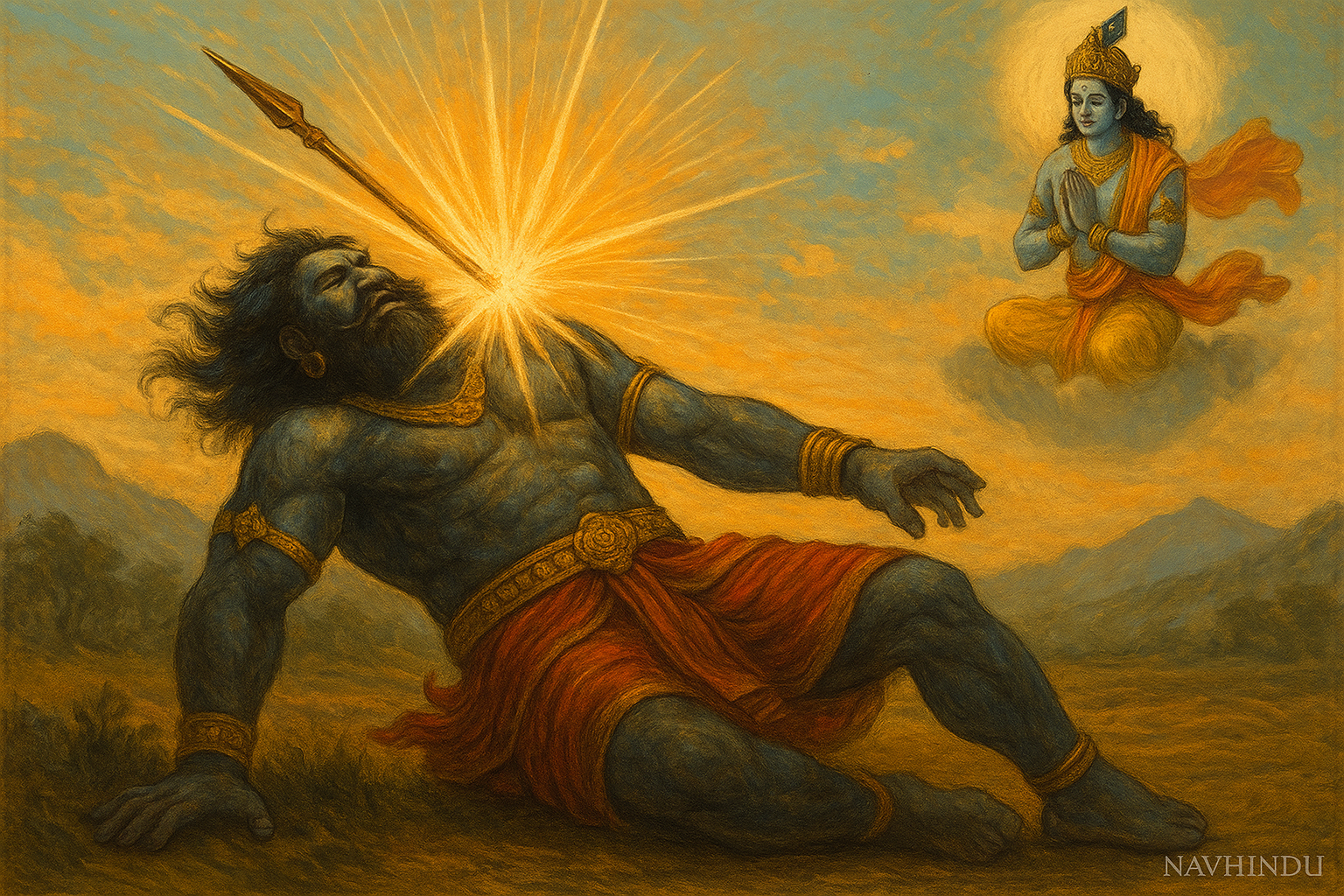If you walk through the surviving verses of the Mahabharata carefully, you will notice something remarkable. A single night in the eighteen-day war quietly reroutes destiny. No conch sounds, no grand declarations — just a strategic sigh in the dark.
In that moment stands Ghatotkacha.
Most remember him as the towering son of Bhima and Hidimba. But to reduce him to physical size is to overlook why Vyasa remembered him at all. Ghatotkacha represented something deeper — the union of forest-born wisdom and royal responsibility. The Pandavas held allies from courts and kingdoms; Ghatotkacha was their bridge to nature’s wild strength.
Night was not simply his comfort — it was his domain. Rakshasa heritage gifted him an instinct for shadows and an ease with illusions. When daylight yielded, strategies that worked against ordinary warriors faltered against him. Few characters in the epic change the tone of a battlefield merely by arrival; he was one.
By the time Ghatotkacha was summoned, both sides were exhausted. Rules had been stretched, alliances frayed, nerves thinned. The Kauravas, pressured by setbacks, turned towards their most prized advantage: Karna’s celestial weapon — the Shakti Astra. It was not forged to intimidate soldiers. It existed to end a single life: Arjuna’s.
Karna kept it for that purpose alone, understanding that arrows can wound armies, but removing Arjuna would break the war’s architecture.
As Ghatotkacha advanced under moonlight, illusions rippled across the battlefield. Warriors found themselves surrounded by forms they couldn’t trust, shapes that multiplied, and fires that danced behind their shields. Horses panicked. Charioteers struggled. The spiral of confusion spread more effectively than blades ever could.
Strategy began slipping.
Kaurava commanders knew that if night belonged to Ghatotkacha, dawn might never come for them. They turned to Karna — and suddenly the question was no longer tactical, but personal.
Should he guard the weapon for his oath against Arjuna?
Or save his collapsing army?
Duty and desire rarely shake hands.
Karna released the Shakti Astra.
The weapon cut through illusion, collided with Ghatotkacha, and lit the sky with a brilliance that ancient poets compared to a second sun. What followed was unusual: even as he fell, Ghatotkacha shifted his collapsing body toward the enemy ranks, crushing more than steel — crushing morale.
And then came something even quieter.
Krishna smiled.
For those reading the epic for the first time, this moment feels uncomfortable. Why smile at an ally’s death? But Krishna’s relationship with time bends differently. He saw that Karna’s ultimate arrow — the one destined for Arjuna — had now been spent. The most dangerous path to the Pandavas had closed.
Arjuna did not escape death by skill alone. He survived because someone else’s story ended precisely when it was needed.
That is the uncomfortable mathematics of war: sometimes one life protects a century of consequences.
The Pandavas had lost a warrior, yes.
But they had retained their war’s axis.
Bhima grieved as a father. That sorrow deserves acknowledgment. His partnership with his son was never loud or poetic, yet it held a rare humility. Ghatotkacha’s final act was not just strategic — it was filial.
Centuries later, scholars view this moment as the fulcrum on which the Mahabharata pivots. Remove it, and the war’s end tilts into uncertainty. Ghatotkacha did not die in vain; he died at the hinge of destiny.
Today, his memory survives in small ways — folk songs in the hills, rituals in forests, and whispered retellings by those who admire quiet sacrifice. Temples rarely sculpt him in marble, but oral memory has its own architecture.
He reminds readers that some warriors do not live long enough to see the world they saved — and perhaps that is why their stories matter. They are not measured by duration, but by direction.
Ghatotkacha’s fall was not glory. It was necessity.
And necessity is the deepest needle through which time threads history.
